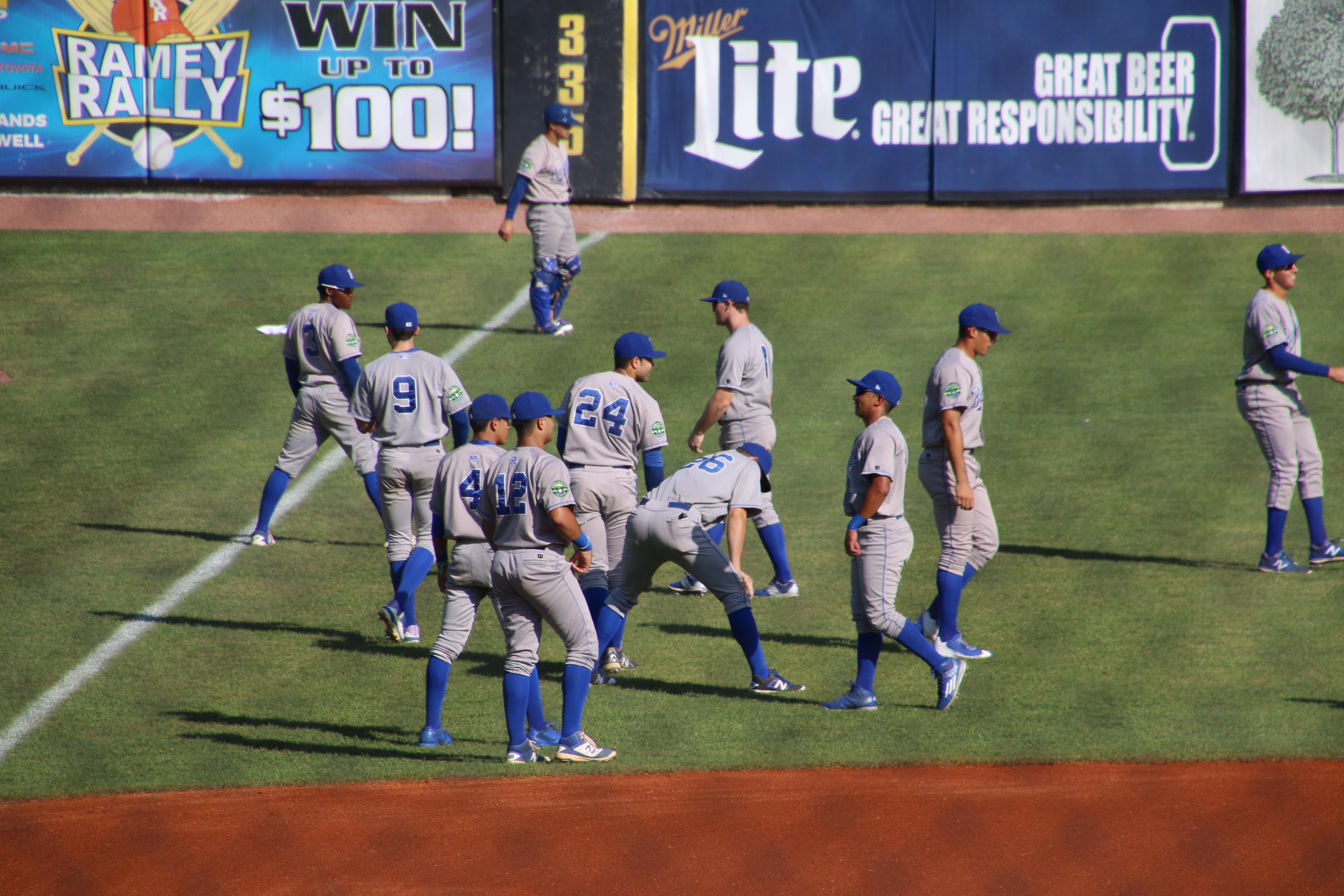In a record for speedy organizing—one week—more than 90% of the nation’s 5,400 minor league baseball players signed National Labor Relations Board union election authorization cards to join the Major League Baseball Players Association.
The announcement, from MLBPA Executive Director Tony Clark—a former minor leaguer and major league star himself and devoted unionist--came at a Sept. 7 press conference in Washington, D.C., with AFL-CIO President Liz Shuler. They simultaneously announced the MLBPA, one of the strongest independent unions in the United States, will become the labor federation’s 58th member union.
“The MLBPA and every single one of its 1,200 players have a home in our movement because this union understands and lives the meaning of the word solidarity by leveraging the power of sports and helping others,” said Shuler. “Together with our 12.5 million members, we will bring our strength to their fights, including working to organize 5,400 minor league players.”
The MLBPA board OK'd the drive two weeks ago, Clark said, and held a national zoom conference call with the minor leaguers a week later. The cards went out the next day and “thousands” were immediately returned, he added.
That result prompted the MLBPA to ask the bosses—the 30 major league teams, who control the minors—for voluntary card-check recognition of the minor leaguers’ determination to unionize. Clark said initial indications are the owners might be receptive.
“Nobody said it would be easy, but we are in a world where bringing the minor leaguers under our umbrella and joining the AFL-CIO together will bring order out of that chaos,” he added.
It may not be immediate, though. Past history between the majors and the MLBPA, including a lockout that virtually wiped out spring training and delayed the majors’ 2022 season start by a week, says otherwise. If the owners refuse, the minor leaguers are prepared to seek formal NLRB authorization for an election, Clark said.
The lockout also prodded the MLBPA to finally affiliate with the AFL-CIO, he added. It will join the federation’s new sports council, which was unveiled at this year’s federation convention in Philadelphia.
The minor leaguers have long been one of the more-oppressed groups of workers in the United States. For six-month seasons, pay tops out at $15,000, save for superstar players initially signed to major league contracts and on the fast track to the big leagues.
Health and safety issues and working conditions—long bus rides in what fans and players call “the bushes” and forced shared apartments housing five or six players each so they can afford the rent—were big issues for the minor leaguers. So was the fact they’re not paid for spring training, while major leaguers are.
“The value of collective bargaining is to have communication between both sides,” workers and management, said Clark. “There is a common interest we’re aligned on: To continue to grow the game and to find ways” to attract new players/members and fans, especially since the average major league career lasts only four years, he added.
Clark himself played in the majors from 1995–2009, with the first half of it with the Detroit Tigers, who signed him. Before that, he spent more than five years In the minors.
The coronavirus pandemic was the catalyst for organizing, though Clark and Shuler had discussed affiliation and issues for years. The modern-day plague forced the majors to completely shut down the minors in 2020, robbing players of a year of development and training for the big leagues. And it accelerated a major league plan, arbitrarily implemented this past winter, to eliminate 40 minor league teams, costing close to 1,000 players their jobs.
It also created a pro-union mood in the country, evidenced not just in the recent Gallup Poll that showed 71% approval of unions, but in the increasing activism among workers—especially younger workers, Shuler said.
The MLBPA stepped in with $1 million in aid to the distressed minor league players and to an organization, Advocates for Minor Leaguers, which kept communications lines open among the minor leaguers and with the big league players.
Working conditions in the minors have been a scandal for literally decades. The first break came when dozens of former minor leaguers, some of whom had reached the majors, won a seven-year-long class action suit in federal appellate court in San Francisco for back pay and unpaid overtime.
Together, they settled for at least $180 million for years of violations of minimum wage laws, no overtime for 60-hour-plus workweeks, no pay for spring training or for majors-mandated off-season conditioning, and more. One former minor leaguer compared conditions to 17th century indentured servitude.
Besides giving the minor leaguers a voice at the bargaining table, the MLBPA’s affiliation with the AFL-CIO will also give its own members an even stronger voice to speak up on some issues, such as civil rights and workers’ rights, with the protection of a collective bargaining agreement, Clark said.
The minor leaguers, like other workers, “see going to your boss by yourself and negotiating that raise isn’t going to work,” added Shuler. It does “when you go together” in the union. “Unions are for everyone in every type of job.”

